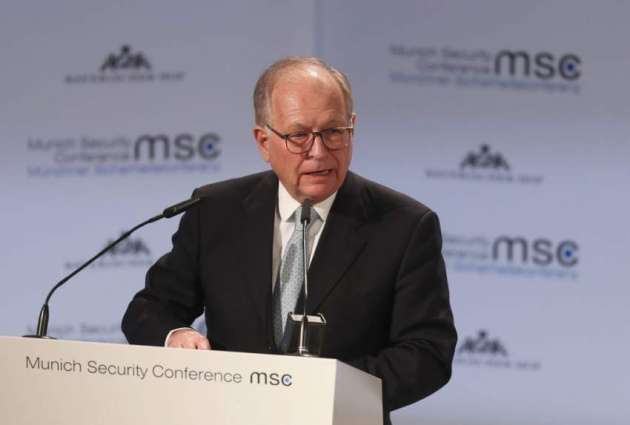The European Union needs to reverse its decision-making mechanism on foreign policy from unanimity to qualified majority voting in order to strengthen its position on the international scene, Chairman of the Munich Security Conference (MSC) Wolfgang Ischinger told Sputnik on the sidelines of the Primakov Readings international forum in Moscow
MOSCOW (Pakistan Point News / Sputnik - 11th June, 2019) The European Union needs to reverse its decision-making mechanism on foreign policy from unanimity to qualified majority voting in order to strengthen its position on the international scene, Chairman of the Munich Security Conference (MSC) Wolfgang Ischinger told Sputnik on the sidelines of the Primakov Readings international forum in Moscow.
In February, the Munich Security Conference said in its 2019 report that "the European Union is particularly ill-prepared for a new era of great power competition." According to the report, the unstable nature of the EU-US relations has led to a renewed discussion of Europe's "strategic autonomy."
"First of all, the European Union needs to get its decision making capacity in order. The decision-making capacity is fine when it comes to trade, agriculture and anti-trust law, where you see a very strong hand of the European Union. The hand of the European Union is very weak when it comes to common foreign policy decisions, because we still have a requirement of unanimity. Therefore, the first step is that the EU needs to start taking decision on foreign policy issues with qualified majority voting like in other fields," Ischinger said when asked what the European Union should do in order to enhance its posture on the global stage.
Brussels also needs to focus on developing "the military underpinning" of its foreign policy decisions, the chairman added and noted that this process had already started.
The European Union has been expanding its autonomous defense capabilities beyond NATO's auspices in recent years. Last year, Brussels established the EU Permanent Structured Cooperation (PESCO) in order to enhance EU military and defense cooperation. The European Union has also doubled number of joint EU defense and security projects to 34.
The United States reportedly expressed concerns to Brussels over the expansion of the bloc's defense programs. NATO Secretary General Jens Stoltenberg has called for the armament developed within PESCO to be made available for NATO members as well.




